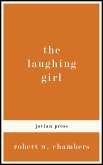In "Fields of Victory," Humphry Ward intricately navigates the psychological and social landscapes of England during the tumultuous years of the First World War. The novel is characterized by its vivid prose and rich descriptive passages that evoke the emotional and moral complexities faced by its characters. Set against the backdrop of war, Ward crafts a compelling narrative that delves into themes of sacrifice, loyalty, and the shifting notions of honor. The literary style she employs weaves together personal and collective experiences, presenting readers with a multifaceted view of a society in crisis, while simultaneously exploring the psychological tapestry woven by the harsh realities of conflict. Humphry Ward, a prominent novelist and social reformer, drew upon her own experiences and the voices of those around her during the war. As a member of a notable literary family, she was deeply engaged with contemporary issues, particularly concerning women's roles and rights during this transformative period. Her commitment to portraying the complexities of human experience, while shedding light on social injustices, is evident in this novel. Ward's insights into the war's impact on society stem from her own observations and her connections within literary and political circles. "Fields of Victory" is a poignant recommendation for readers interested in understanding the intricate interplay of personal and collective narratives during the Great War. Ward's skillful storytelling and multifaceted characters will resonate with anyone seeking to explore the deeper meanings of sacrifice and resilience in the face of adversity. This novel not only reflects a historical moment but also poses timeless questions about humanity and the consequences of conflict.
Dieser Download kann aus rechtlichen Gründen nur mit Rechnungsadresse in A, B, BG, CY, CZ, D, DK, EW, E, FIN, F, GR, H, IRL, I, LT, L, LR, M, NL, PL, P, R, S, SLO, SK ausgeliefert werden.









